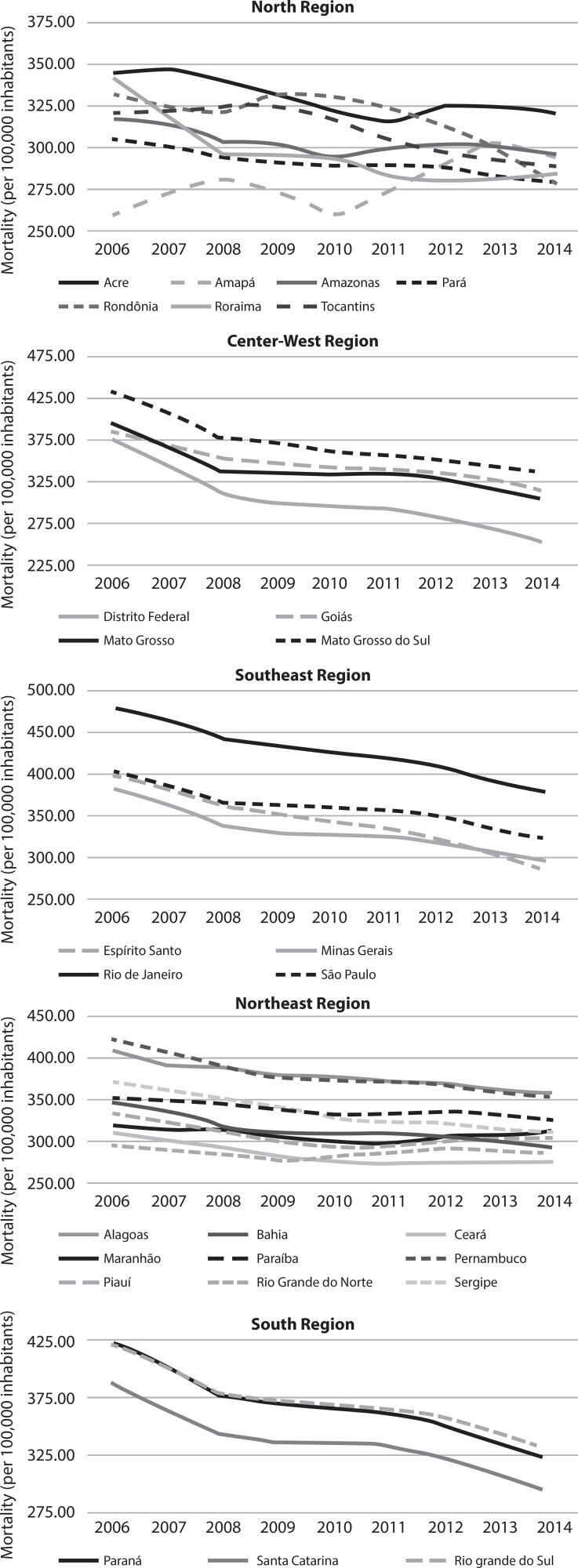-
EXPERIENCE REPORT
Health promotion of long-haul truck drivers and their families
Revista Brasileira de Enfermagem. 2024;77(Suppl 2):e20230511
09-30-2024
Resumo
EXPERIENCE REPORTHealth promotion of long-haul truck drivers and their families
Revista Brasileira de Enfermagem. 2024;77(Suppl 2):e20230511
09-30-2024DOI 10.1590/0034-7167-2023-0511
Visualizações0ABSTRACT
Objectives:
to describe the development of a Health Information and Communication Technology for the health care of long-haul truck drivers and their families.
Methods:
this is a description of the development of an Information and Communication Technology, developed from March to September 2023, following the systematization of the experience in five steps: 1) starting point, 2) initial questions, 3) recovery of the lived process, 4) background reflection, and 5) arrival points.
Results:
the technology called “Work-Family Balance,” electronically available, presents resources for the health care of long-haul truck drivers. It is anchored in studies on the health of long-haul truck drivers, notes from the International Labor Organization, the Strategic Action Plan for Confronting Chronic Diseases and Non-Communicable Diseases in Brazil, 2021-2030, and the Declaration by the International Association of Family Nursing.
Final Considerations:
the theoretical improvement of nursing can potentially improve the health care of long-haul truck drivers, prevent Chronic Non-Communicable Diseases, and promote work-life balance to achieve the goals of Agenda 2030.
Palavras-chave: Family HealthInformation TechnologyNoncommunicable DiseasesSustainable DevelopmentWork-Life BalanceVer mais
-
ORIGINAL ARTICLE
Premature mortality caused by the main chronic noncommunicable diseases in the Brazilian states
Revista Brasileira de Enfermagem. 2019;72(6):1588-1594
10-21-2019
Resumo
ORIGINAL ARTICLEPremature mortality caused by the main chronic noncommunicable diseases in the Brazilian states
Revista Brasileira de Enfermagem. 2019;72(6):1588-1594
10-21-2019DOI 10.1590/0034-7167-2018-0701
Visualizações0ABSTRACT
Objective:
To verify the variation of the premature mortality rate caused the group of the main chronic noncommunicable diseases.
Method:
This is a time-series ecological study, which used secondary data of the Mortality Information System, from 2006 to 2014, from the 26 federal units and from the Federal District. Deaths caused by circulatory system diseases, cancer, diabetes and chronic respiratory diseases were included. The trend of adjusted mortality rate was analyzed by segmented linear regression.
Results:
Premature mortality tended to be reduced in most states, except for Maranhão and Rio Grande do Norte, which presented a stable premature mortality rate. Bahia, Pernambuco, Sergipe, Roraima and all the states from the South, Southeast and Central-West Regions reached the goal of reducing 2% per year in premature mortality caused by main diseases.
Conclusion:
Most of the states showed a reduced mortality rate and are reaching the proposed target.
Palavras-chave: Chronic DiseaseEcological StudiesMortality, PrematureNoncommunicable DiseasesPublic HealthVer mais



